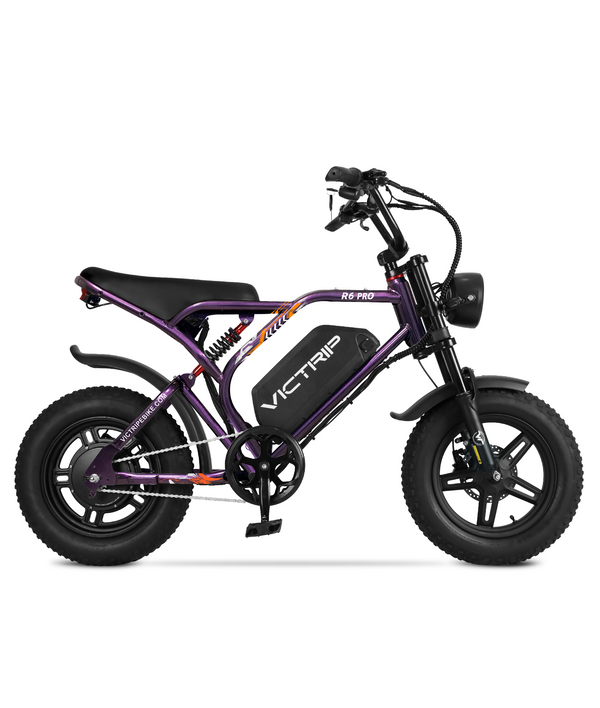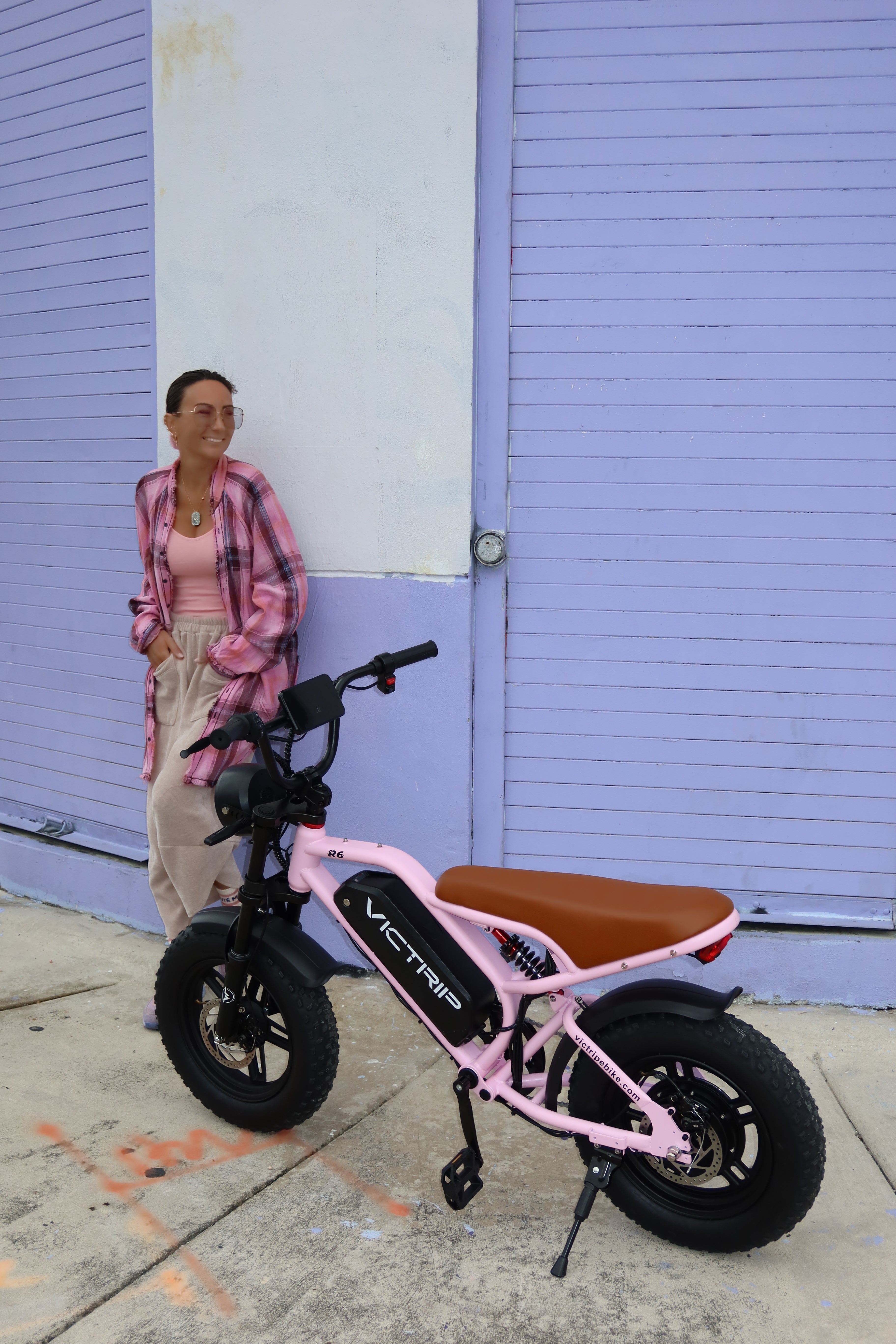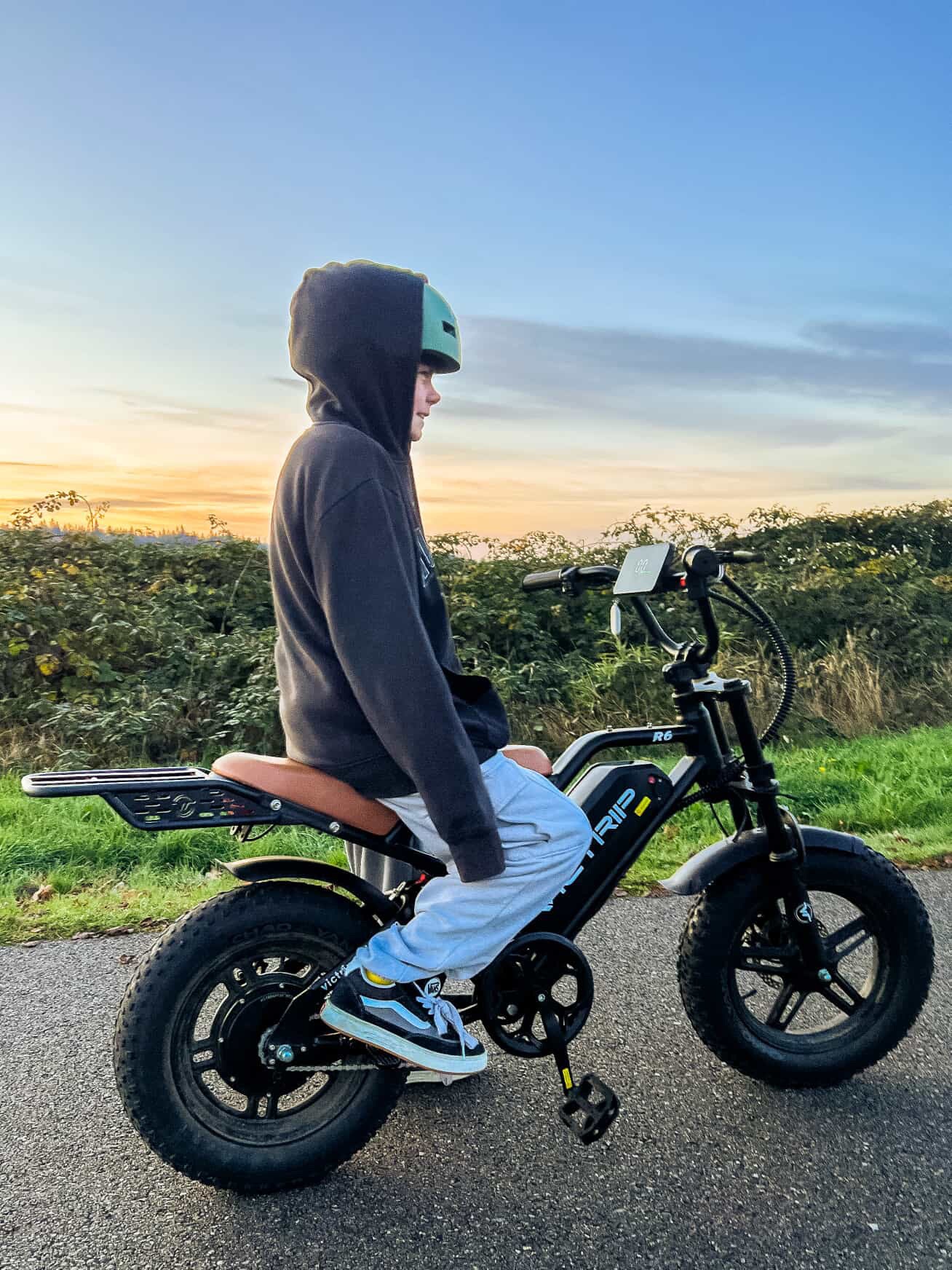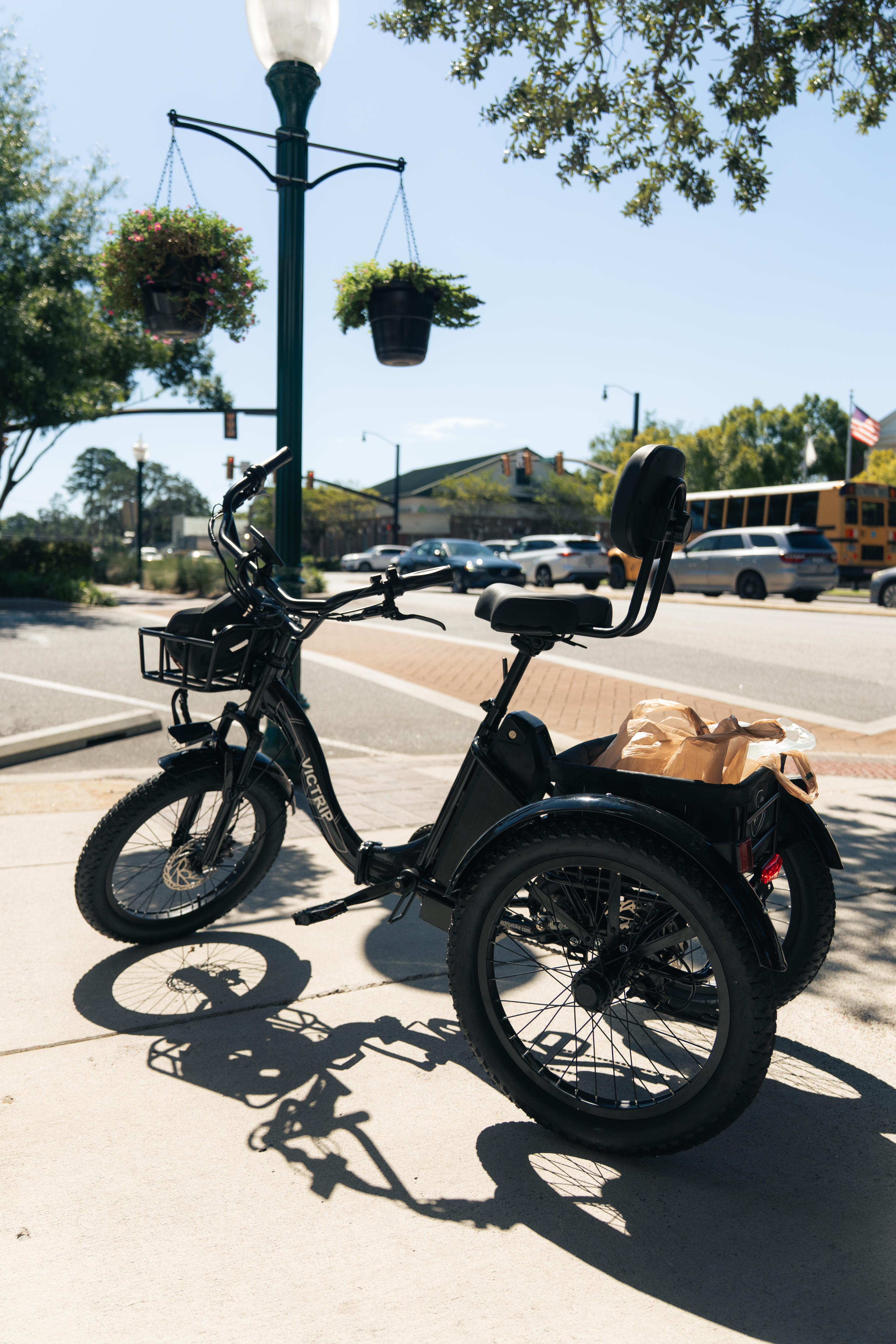
When people search “how fast can electric bikes go for adults?”, they’re usually looking for more than just a number. They want to know what’s legal, what’s safe, and what’s realistically possible. Today’s e-bikes are faster, more advanced, and more efficient than ever before. Whether you ride for commuting, fitness, or weekend adventures, your bike’s speed influences your travel time, range, and overall enjoyment.
Electric bike speed is shaped by motor power, battery voltage, rider weight, terrain, and even government restrictions. Understanding these factors helps riders choose an e-bike that actually fits their lifestyle.
Electric bikes for adults typically reach speeds between 20 mph and 28 mph (32–45 km/h) depending on the class. However, performance models and off road e-bikes can surpass 35 mph or even 45 mph—though these speeds aren’t legal for street riding in most areas.
Before we dive deeper, let’s break down what speed really means in the world of e-bikes.
Why Speed Matters for Adult Riders
Speed determines how practical your e-bike is for different purposes:
-
Commuting: Higher speeds shorten travel time and make daily rides more reliable.
-
Fitness: Faster bikes keep riders engaged and challenged.
-
Errands & Urban Travel: Higher top speed makes multi-stop trips easier.
-
Recreation: Speed adds excitement for weekend rides.
-
Safety: Riding too slowly in traffic can be dangerous; appropriate speeds help you match vehicle flows.
Still, faster isn’t always better. With higher speeds comes increased braking distance, greater battery consumption, and stricter legal rules.
The Role of Motor Power in Determining E-Bike Speed
Motor power is one of the biggest factors influencing how fast Electric bikes can go for adults.
Key Power Levels & Their Typical Speeds
| Motor Type | Power Rating | Average Top Speed |
|---|---|---|
| Small commuter motor | 250W | 20 mph |
| Mid-range hybrid motor | 350–500W | 20–28 mph |
| Performance motor | 750W | 28–33 mph |
| High-performance/Off-road | 1000W+ | 35–45 mph |
Higher-wattage motors deliver stronger torque, especially uphill. But in many countries, street-legal wattage is capped.
Legal Speed Limits for Electric Bikes in the U.S. & Worldwide
Understanding E-Bike Classes
In the U.S., e-bikes fall into three standard categories:
| Class | Max Assisted Speed | Throttle? | Where You Can Ride |
|---|---|---|---|
| Class 1 | 20 mph | No | Most bike paths & streets |
| Class 2 | 20 mph | Yes | Most bike paths & streets |
| Class 3 | 28 mph | Usually no throttle | Roads, bike lanes |
Global Speed Restrictions
Countries have wildly different rules. For instance:
-
EU: 15.5 mph (25 km/h) limit
-
Canada: 20 mph (32 km/h)
-
Australia: 15.5 mph (25 km/h)
-
Japan: 15 mph (24 km/h)
These laws strongly impact how fast electric bikes can go for adults—regardless of the motor’s real potential.
Real-World Top Speeds by E-Bike Type
This is where the fun starts, because not all electric bikes are built the same. Let’s look at how fast each type can realistically go under normal conditions.
City Commuter E-Bikes
These models prioritize efficiency, comfort, and safety.
Typical top speeds:
-
20–28 mph
-
Some performance commuters: 30 mph
City e-bikes are optimized for paved roads, predictable traffic, and moderate hills. Their motors are often 250–750W.
Mountain & Off-Road Electric Bikes
Built for power and torque, these bikes crush steep climbs and rough surfaces.
Typical top speeds:
-
20–28 mph (legal versions)
-
30–35 mph (private trail or off-road)
Knobby tires and heavy-duty frames mean you may not reach commuter-level speeds on pavement, but these are beasts on uneven terrain.

High-Speed Performance E-Bikes
These are engineered for velocity.
Typical top speeds:
-
35–45 mph for off-road models
-
28 mph for legal road-optimized models
High-speed e-bikes often feature:
-
750W–2000W motors
-
52V or 72V battery systems
-
Motorcycle-grade brakes
While thrilling, they require skilled handling and are usually illegal for street use.
Factors That Affect How Fast Electric Bikes Can Go for Adults
1. Rider Weight
A heavier rider experiences:
-
Slower acceleration
-
More motor strain
-
Lower max speeds uphill
2. Terrain Type
Speed varies dramatically by surface:
-
Flat roads: Maximum possible speed
-
Hills: Motor wattage matters most
-
Gravel or dirt: Lower traction = lower speed
3. Battery Voltage
Voltage determines how much power a motor can push.
| Battery Voltage | Power Output | Speed Impact |
|---|---|---|
| 36V | Low–medium | Slower acceleration |
| 48V | Medium–strong | Typical commuter voltage |
| 52V | Strong | Higher speeds & torque |
| 72V | Very strong | High-performance speed bikes |
4. Controller Programming
Manufacturers limit speed deliberately to follow regulations. Advanced users can reprogram controllers, but doing so may be illegal.
5. Weather & Riding Conditions
Speed drops in:
-
Rain
-
Snow
-
High winds
-
Low tire pressure
How to Safely Increase Your E-Bike’s Speed
1. Upgrade to Faster Tires
Smooth, narrow, high-pressure tires reduce rolling resistance.
2. Increase Battery Voltage (Where Legal)
A jump from 48V to 52V improves torque and top speed.
3. Reduce Bike Weight
Remove:
-
Rear racks
-
Heavy accessories
-
Extra battery bags
4. Optimize Settings
Some e-bikes include:
-
Sport mode
-
Boost mode
-
Adjustable current limits
5. Avoid Illegal Modifications
Speed derestriction (a.k.a. “unlocking”) may:
-
Void warranties
-
Break traffic laws
-
Reduce safety
Range vs. Speed: How Going Faster Impacts Battery Life
Here’s an important truth:
The faster you go, the faster your battery drains.
At 28 mph, you may consume 2× more energy than riding at 15 mph.
Real-World Example
| Speed | Approx. Range |
|---|---|
| 15 mph | 45–60 miles |
| 20 mph | 30–40 miles |
| 28 mph | 20–30 miles |
| 35+ mph | 10–20 miles |
To get the best of both worlds:
-
Use pedal assist instead of pure throttle
-
Maintain proper tire inflation
-
Avoid riding in the highest power mode constantly
Best E-Bike Speed Options for Adults in 2025
For Commuters
Look for:
-
500W–750W motors
-
20–28 mph top speed
-
Long-range batteries
For Long-Distance Riders
Consider:
-
500W motors for efficiency
-
20–25 mph comfortable cruising
-
Dual-battery setups
For Speed Enthusiasts (High-Performance / Moped-Style)
A standout example is the VICTRIP R6 Pro 1500W Moped Style E‑Bike. This electric bike is designed in a moped style but still qualifies as an e-bike, merging power, comfort, and retro aesthetics.
-
Motor & Power: It has a 1500 W (peak 1800 W) rear-hub motor.
-
Top Speed: The R6 Pro can reach up to 35 mph.
-
Range: On a single charge, it claims a range of 95+ miles under optimal conditions.
-
Suspension: It features full suspension, with a dual-crown fork for improved stability—especially useful for its moped-style frame.
This model is perfect for riders who want the thrill of a fast e-bike but with a comfortable, low-to-the-ground moped frame that doesn’t feel too “motorbike-like.” It’s especially well-suited for mixed terrain — city roads, light off-road, and recreational cruising — if local laws permit that top speed.
TOP PICK

VICTRIP®R6 Pro 1500W Moped Style EBike
$1,099.00
Conclusion
So, how fast can electric bikes go for adults? Legally, most top out at 20–28 mph, depending on the class. But performance models can exceed 35–45 mph when used off-road or on private land. Motor wattage, battery voltage, terrain, and rider weight all impact real-world speeds. While faster e-bikes are exciting, safety and legality should always come first.
If you're shopping for an adult e-bike, think about your priorities—commuting, fitness, adventure, or speed—and choose a model that aligns with your needs while staying within local laws.
FAQs
1. How fast can electric bikes legally go for adults?
Most countries cap e-bike speeds at 20–28 mph depending on class rules.
2. Can adults ride e-bikes faster than 30 mph?
Yes, but only on private property or off-road trails. It’s illegal on public streets.
3. What’s the fastest electric bike for adults?
Some specialty e-bikes reach 45+ mph, but they're not street legal.
4. Does weight affect e-bike speed?
Yes. Heavier riders accelerate more slowly and may not reach the bike’s max speed uphill.
5. How do I make my e-bike faster safely?
Optimize tires, reduce weight, adjust assist settings, and maintain battery health.




Share:
How to Choose the Right Moped Scooter for Your Lifestyle?
Best Electric Bike For Seniors: Safe, Comfortable, and Easy to Ride